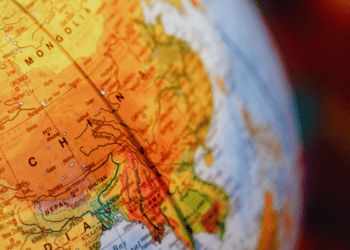 A pair of recently-released Supreme Court decisions have confirmed the place for the National Energy Board – a highly skilled, specialized tribunal with real expertise – in making decisions on issues related to the oil and gas industry, writes Dwight Newman.
A pair of recently-released Supreme Court decisions have confirmed the place for the National Energy Board – a highly skilled, specialized tribunal with real expertise – in making decisions on issues related to the oil and gas industry, writes Dwight Newman.
By Dwight Newman, July 27, 2017
Wednesday morning’s two Supreme Court of Canada decisions concerning the National Energy Board (NEB) and consultation with Indigenous communities regarding impacts on their treaty rights saw differing results but shared themes.
In one decision, the Chippewas of the Thames lost their challenge to the NEB’s approval of Enbridge’s plan to reverse the flow of its Line 9 pipeline, and were even ordered to pay Enbridge’s legal costs. In the other, Inuit from Clyde River, Nunavut successfully argued that the NEB had not consulted properly on plans by a Norwegian consortium to do seismic testing for oil that had the potential to affect marine mammals.
But despite the different outcomes, in both decisions the court reaffirmed the role of good consultation and the ways it is being done, when it is done well. And it has skillfully shown how the rules on consultation apply in the unique context of the National Energy Board in ways that have broader, intriguing implications. The decisions emphasize the importance of the role of the NEB as a highly experienced and highly qualified tribunal, with a very complex role that should not be tampered with lightly for the sake of political fashions.
In both decisions the court reaffirmed the role of good consultation and the ways it is being done, when it is done well.
On the challenge by the Chippewas of the Thames to the NEB’s approval of Enbridge’s Line 9 reversal, the court affirmed that a regulatory process like the NEB process can in certain circumstances fulfill all requirements of the duty to consult without the government carrying out separate consultation.
On the facts, the NEB had given opportunities to potentially affected First Nations to express issues, and the court held that the conditions the NEB imposed on the Line 9 project sufficiently accommodated any potential rights impacts.
This case actually marks another affirmation that major energy companies like Enbridge are effectively meeting the legal requirements on consultation, as has been held in other cases involving it as well.
Indeed, the Supreme Court of Canada’s order that the Chippewas of the Thames pay Enbridge’s legal costs is a tough but important reminder that Indigenous communities take risks in putting unwarranted legal challenges when real efforts have gone into a solid consultation processes.
The companion case from Clyde River in Nunavut saw the court rule that consultation over seismic testing that potentially affected Arctic marine mammals had not been adequate, and it quashed the NEB’s approval of this testing.
There will be some specific lessons from this case, partly arising from the factual realities of a jurisdiction like Nunavut. On the rules on consultation, particularly robust consultation was owing.
Yet, apart from a lack of appropriate hearings on treaty-rights issues, there were serious gaps in consultations. Some of the key documents presented to communities had not been made available in the local language, or had been made available only in massive computer files that could not be downloaded at the bandwidth speeds available in Nunavut. Consultation cannot be approached haphazardly.
The court’s decisions see it applying existing law on the duty to consult in a manner seeking to balance all interests. And there is a lot of room for common ground.
As the court stated in the Clyde River judgment, “No one benefits — not project proponents, not Indigenous peoples, and not non-Indigenous members of affected communities — when projects are prematurely approved only to be subjected to litigation.” But there is room for everyone to work together in light of established law on the duty to consult to realize Canada’s resource potential in responsible ways.
In the current climate of proposed changes to the NEB, it is also important to realize the complexity of the role it plays.
These judgments were partly about clarifying some technical issues on the role of the NEB in such consultations. The NEB has a particularly complex role. In part, its regulatory process can fulfill the duty to consult. In part, when it has final decision-making authority (rather than a power to recommend to cabinet) in the context of certain expedited smaller-impact projects, its decision-making on behalf of the Crown can trigger the legal requirement of consultation. And in part, in making decisions, it has a responsibility to determine that consultation requirements have been properly met.
Although there are some specific lessons the NEB will learn from the Clyde River case, the judgments effectively amount to an affirmation of the place of a highly skilled, specialized tribunal with real expertise when making decisions on issues related to the oil and gas industry.
There is always room for improvements to processes and institutions. But in the current climate of proposed changes to the NEB, it is also important to realize the complexity of the role it plays.
Any larger modifications to the NEB need to be considered tremendously carefully. There could be real risks of problems arising from modifications if they were to undermine the NEB’s expertise and specialized character that enable it to meet the complex demands of its role.
Dwight Newman is professor of law and Canada Research Chair in Indigenous Rights at the University of Saskatchewan and a Senior Fellow at the Macdonald-Laurier Institute.




